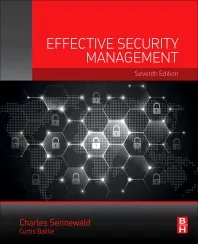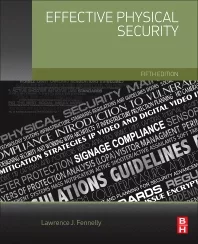The Due Diligence of Effective Background Screening
The days of basing a hiring decision on gut instinct are long gone, with the need for pre-employment background checks a must in the process.
The days of basing a hiring decision on gut instinct are long gone, with the need for pre-employment background checks a must in the process. Most companies understand that one negative workplace incident can cripple a business; therefore an effective background check is vital to the well-being of the organization and staff. Moreover it is the imperative of Chief Security Officers and Human Resources to work together to ensure the due diligence of comprehensive background screening.
That said, there remains some confusion over the elements and parameters of a background investigation.
Unfortunately, there is no central database available to the private sector where all criminal records are stored and no magic CSI computer linking all courthouse records. There are thousands of courthouses in this country, so it is essential to start with a search of the courts in each county where the prospective hire has lived, worked or attended school for at least the past seven years.
While it is true that some states have central repositories where counties forward criminal records, thereby making it easier to search the entire state with one investigation, problems can exist in central repositories. These problems include delays in information getting into the repository or data that is not completed or updated once it arrives. As example, a large percentage of records are derived from the Departments of Correction in various states; if an applicant was convicted, but never served time, a “no record found” could show. Therefore, the county level – although limited in scope geographically – remains as the best place to search for accurate and up-to-date criminal records.
Now what if an applicant has a record in Georgia, but fails to disclose the former address that would have indicated a Georgia search was necessary? A Social Security number trace will show past addresses associated with the individual. All names associated with a Social Security number will also be reported so if the applicant once used another name – perhaps due to marriage – and lived in another state but failed to disclose this information, any criminal history search conducted could be focused in the wrong place…and even perhaps the wrong name. A Social Security number trace will get the search back on track.
Those with a past can be quite adept at keeping a secret. Reporting a false date of birth can be enough to bring back a “no record found” on a report when a serious criminal conviction may actually exist. Having the correct information is vital. Driving records can help as most will show an accurate date of birth; driving records may also indicate previous addresses, DUIs and drug offenses.
Beyond criminal records, screening packages should investigate and confirm information based on the nature of the job. Employers need not use the same screening package for every position, but should maintain consistency for everyone who is being screened for the same or similar positions.
As example, a job that includes driving – however limited and even using the employee’s own vehicle – should include a driving record check. Another case in point is a position with budget or other financial responsibilities. The screening package for these posts should include a credit history check; however some states restrict the use of credit reports for employment purposes so it is advisable to have a firm grasp of local laws.
Many enterprises require a pre-employment drug test. In fact, some states allow for reduced Worker’s Compensation insurance rates for businesses with a comprehensive Drug Free Workplace policy. Statistics show that most drug abusers are employed and are not the stereotypical “skid row” addict. Drug abusers are more likely to steal from employers and are also more likely to have workplace accidents and generally higher absenteeism rates.
If part of a hiring decision is based on a college degree, verification is recommended. That also applies to positions that require a professional license.
It should be noted that many previous employers may be reluctant to provide much information beyond dates of employment and title, but it’s still worth trying to “push the envelope.” Applicants may sometimes stretch the truth about the length of previous employment or exaggerate responsibilities. Often a phone call will uncover falsehoods listed on applications, and every once in a while you may encounter a talkative previous employer who is all too happy to tell you about their experience with your applicant.
It is important to avoid problems with FCRA (Fair Credit Reporting Act) compliance and not to run afoul of EEOC (Equal Employment Opportunity Commission) guidelines when using a completed background check in making a hiring decision.
If the background check report contains information in whole or in part that results in an adverse decision – whether it be hiring, promotion or retention – then you must send the applicant a pre-adverse action notice, a copy of the credit report and a summary of rights under the FCRA. Applicants must be given a reasonable amount of time to refute the information contained in the report before a final decision is made. If the contemplated adverse action is the final decision, the employer is required to send a final notice to the applicant.
EEOC strongly discourages blanket policies that don’t permit hiring individuals with criminal records. CSOs and HR should make sure that their hiring criteria are job-related and consistent with business necessity.
Background screening firms can assist with the decision-making process, and while they will not make the final decision they can provide mechanisms, such as software programs, that can help create policy and adjudicate background screening results.
By David C. Sawyer, president of Safer Places, Inc., a full-service firm based in Middleboro, Mass., that specializes in pre-employment screening, security consulting and tenant screening.
Looking for a reprint of this article?
From high-res PDFs to custom plaques, order your copy today!





